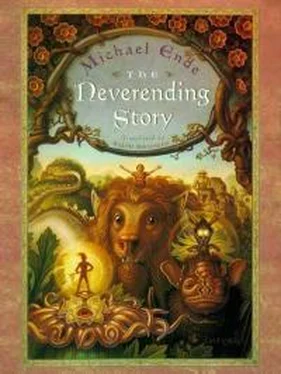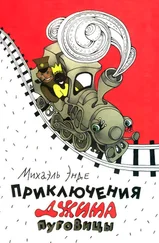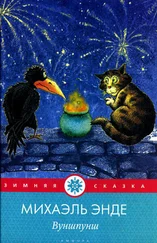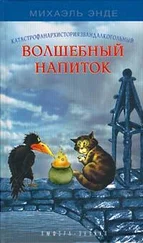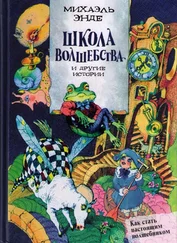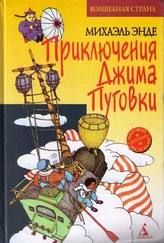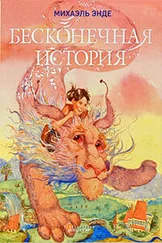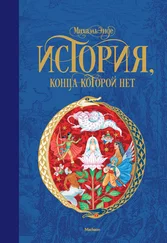Михаэль Энде - The Neverending Story
Здесь есть возможность читать онлайн «Михаэль Энде - The Neverending Story» весь текст электронной книги совершенно бесплатно (целиком полную версию без сокращений). В некоторых случаях можно слушать аудио, скачать через торрент в формате fb2 и присутствует краткое содержание. Год выпуска: 1997, ISBN: 1997, Издательство: Dutton Children's Books, Жанр: Детская проза, fairy_fantasy, на английском языке. Описание произведения, (предисловие) а так же отзывы посетителей доступны на портале библиотеки ЛибКат.
- Название:The Neverending Story
- Автор:
- Издательство:Dutton Children's Books
- Жанр:
- Год:1997
- ISBN:9780525457589
- Рейтинг книги:3 / 5. Голосов: 1
-
Избранное:Добавить в избранное
- Отзывы:
-
Ваша оценка:
- 60
- 1
- 2
- 3
- 4
- 5
The Neverending Story: краткое содержание, описание и аннотация
Предлагаем к чтению аннотацию, описание, краткое содержание или предисловие (зависит от того, что написал сам автор книги «The Neverending Story»). Если вы не нашли необходимую информацию о книге — напишите в комментариях, мы постараемся отыскать её.
The Neverending Story — читать онлайн бесплатно полную книгу (весь текст) целиком
Ниже представлен текст книги, разбитый по страницам. Система сохранения места последней прочитанной страницы, позволяет с удобством читать онлайн бесплатно книгу «The Neverending Story», без необходимости каждый раз заново искать на чём Вы остановились. Поставьте закладку, и сможете в любой момент перейти на страницу, на которой закончили чтение.
Интервал:
Закладка:
Bastian listened to the mumbling from the little back room. In a twinkling, before he knew it, he had the book under his coat and was hugging it with both arms. Without a sound he backed up to the street door, keeping an anxious eye on the other door, the one leading to the back room. Cautiously he turned the door handle. To keep the brass bells from ringing, he opened the glass door just wide enough for him to slip through. He quietly closed the door behind him.
Only then did he start running.
The books, copybooks, pens and pencils in his satchel jiggled and rattled to the rhythm of his steps. He had a stitch in his side. But he kept on running.
The rain ran down his face and into his collar. The wet cold passed through his coat, but Bastian didn’t feel it. He felt hot all over, but not from running.
His conscience, which hadn’t let out a peep in the bookshop, had suddenly woken up. All the arguments that had seemed so convincing melted away like snowmen under the fiery breath of a dragon.
He had stolen. He was a thief!
What he had done was worse than common theft. That book was certainly the only one of its kind and impossible to replace. It was surely Mr. Coreander’s greatest treasure. Stealing a violinist’s precious violin or a king’s crown wasn’t at all the same as filching money from a cash drawer.
As he ran, he hugged the book tight under his coat. Regardless of what this book might cost him, he couldn’t bear to lose it. It was all he had left in the world.
Because naturally he couldn’t go home anymore.
He tried to imagine his father at work in the big room he had furnished as a laboratory. Around him lay dozens of plaster casts of human teeth, for his father was a dental technician. Bastian had never stopped to ask himself whether his father enjoyed his work. It occurred to him now for the first time, but now he would never be able to ask him.
If he went home now, his father would come out of his lab in a white smock, possibly holding a plaster cast, and he would ask: “Home so soon?” “Yes,” Bastian would answer. “No school today?” He saw his father’s quiet, sad face, and he knew he couldn’t possibly lie to him. Much less could he tell him the truth. No, the only thing left for him was to go away somewhere. Far, far away. His father must never find out that his son was a thief. And maybe he wouldn’t even notice that Bastian wasn’t there anymore. Bastian found this thought almost comforting.
He had stopped running. Walking slowly, he saw the schoolhouse at the end of the street. Without thinking, he was taking his usual route to school. He passed a few people here and there, yet the street seemed deserted. But to a schoolboy arriving very, very late, the world around the schoolhouse always seems to have gone dead. At every step he felt the fear rising within him. Under the best of circumstances he was afraid of school, the place of his daily defeats, afraid of his teachers, who gently appealed to his conscience or made him the butt of their rages, afraid of the other children, who made fun of him and never missed a chance to show him how clumsy and defenseless he was. He had always thought of his school years as a prison term with no end in sight, a misery that would continue until he grew up, something he would just have to live through.
But when he now passed through the echoing corridors with their smell of floor wax and wet overcoats, when the lurking stillness suddenly stopped his ears like cotton, and when at last he reached the door of his classroom, which was painted the same old spinach color as the walls around it, he realized that this, too, was no place for him. He would have to go away. So he might as well go at once.
But where to?
Bastian had read stories about boys who ran away to sea and sailed out into the world to make their fortune. Some became pirates or heroes, others grew rich and when they returned home years later no one could guess who they were.
But Bastian didn’t feel up to that kind of thing. He couldn’t conceive of anyone taking him on as a cabin boy. Besides, he had no idea how to reach a seaport with suitable ships for such an undertaking.
So where could he go?
Suddenly he thought of the right place, the only place where—at least for the time being—no one would find him or even look for him.
The attic of the school was large and dark. It smelled of dust and mothballs. Not a sound to be heard, except for the muffled drumming of the rain on the enormous tin roof. Great beams blackened with age rose at regular intervals from the plank floor, joined with other beams at head height, and lost themselves in the darkness. Here and there spider webs as big as hammocks swayed gently in the air currents. A milky light fell from a skylight in the roof.
The one living thing in this place where time seemed to stand still was a little mouse that came hobbling across the floor, leaving tiny footprints in the dust—and between them a fine line, a tailprint. Suddenly it stopped and pricked up its ears. And then it vanished— whoosh! —into a hole in the floor.
The mouse had heard the sound of a key in a big lock. The attic door opened slowly, with a loud squeak. For a moment a long strip of light crossed the room. Bastian slipped in. Then, again with a squeak, the door closed. Bastian put the big key in the lock from inside and turned it. Then he pushed the bolt and heaved a sigh of relief. Now no one could possibly find him. No one would look for him here. The place was seldom used—he was pretty sure of that—and even if by chance someone had something to do in the attic, today or tomorrow, he would simply find the door locked. And the key would be gone. And even if they somehow got the door open, Bastian would have time to hide behind the junk that was stored here.
Little by little, his eyes got used to the dim light. He knew the place. Some months before, he had helped the janitor to carry a laundry basket full of old copybooks up here. And then he had seen where the key to the attic door was kept—in a wall cupboard next to the topmost flight of stairs. He hadn’t thought of it since. But today he had remembered.
Bastian began to shiver, his coat was soaked through and it was cold in the attic. The first thing to do was find a place where he could make himself more or less comfortable, because he took it for granted that he’d have to stay here a long time. How long? The question didn’t enter his head, nor did it occur to him that he would soon be hungry and thirsty.
He looked around for a while. The place was crammed with junk of all kinds; there were shelves full of old files and records, benches and ink-stained desks were heaped up every which way, a dozen old maps were hanging on an iron frame, there were blackboards that had lost a good deal of their black, and cast-iron stoves, broken-down pieces of gymnasium equipment—including a horse with the stuffing coming out through the cracks in its hide—and a number of soiled mats. There were also quite a few stuffed animals—at least what the moths had left of them—a big owl, a golden eagle, a fox, and so on, cracked retorts and other chemical equipment, a galvanometer, a human skeleton hanging on a clothes rack, and a large number of cartons full of old books and papers. Bastian finally decided to make his home on the pile of old gym mats. When he stretched out on them, it was almost like lying on a sofa. He dragged them to the place under the skylight where the light was best. Not far away he found a pile of gray army blankets; they were dusty and ragged but that didn’t matter now. He carried them over to his nest. He took off his wet coat and hung it on the clothes rack beside the skeleton. The skeleton jiggled and swayed, but Bastian had no fear of it, maybe because he was used to such things at home. He also removed his wet shoes. In his stocking feet he squatted down on the mats and wrapped himself in the gray blankets like an Indian. Beside him lay his school satchel—and the copper-colored book.
Читать дальшеИнтервал:
Закладка:
Похожие книги на «The Neverending Story»
Представляем Вашему вниманию похожие книги на «The Neverending Story» списком для выбора. Мы отобрали схожую по названию и смыслу литературу в надежде предоставить читателям больше вариантов отыскать новые, интересные, ещё непрочитанные произведения.
Обсуждение, отзывы о книге «The Neverending Story» и просто собственные мнения читателей. Оставьте ваши комментарии, напишите, что Вы думаете о произведении, его смысле или главных героях. Укажите что конкретно понравилось, а что нет, и почему Вы так считаете.
